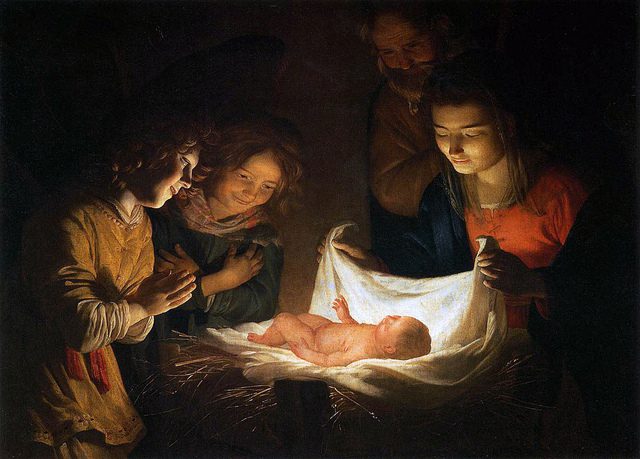Let me be the second to say it: I was wrong!
The first was the writer of a comment on the blog post I published yesterday, politely suggesting a hymn that he thought deserved to be on this list. And he was right, he was absolutely right.
But that sort of list is supposed to be subjective, right? Especially when it’s scrawled on the nothingness of the internet, appearing with a mouse click, disappearing moments later with another. Yes, that’s what it’s supposed to be.
But still, mine was wrong. Now, I do believe that the five I listed are great carols, each deserving of a place in our canon of musical homage. But I can’t imagine any other hymn topping the one this reader shared, which reflects the 5th-century context from which it came and gives us a brilliant musical form of incarnational theology. In fact, it’s a fine companion to the leading statement of faith from its time: the Nicene Creed.
I don’t know why I missed it. I didn’t even think about it when I was writing. The best I can do is attribute it to my Southern Baptist upbringing. Though it was in all of our hymnals, I never heard it sung, and just imagined it was one of those weird hymns nobody ever sang. There wasn’t even any harmony written to it, so it certainly wouldn’t me as much fun to sing as those gospel hymns, with their booming oom-pah bass lines and alto parts that required a vocal range of a minor third.
I can’t believe I missed it then, too.
This perfect carol takes its title from the first line, “Of the Father’s Love Begotten.” It doesn’t even get to the baby in a manger until stanza 3, but with good reason. That little baby wasn’t born in a vacuum. The Incarnation wasn’t the beginning of the story. This little baby himself is God from God, Light from Light, eternally begotten of God the Father, at whose feet powers and dominions fall. This is the Alpha and Omega, the source and the end of all things.
The Bible is a book on the widest screen. It begins with the beginning of everything, and even “before” then, and it ends with the heavenly banquet in the Kingdom of God at the end of time. We have seen how “Of the Father’s Love” traces the partial harmonies of this flawed world back to the more robust harmonies of the beginning. But likewise we as Christians know that we are headed toward a perfect harmony at the end of time. Then who Christ is will be clear, and God’s perfect will accomplished. We will see God as if face to face – this is what Moses, Job and Paul tell us “of one accord.” Our small harmonies are bounded at both ends by vast harmonies like an island with the ocean on either shore. Amazingly, our spiritual preparation for this great consummation is singing. So we who sing this hymn engage in an echo of that coming day, even as we meditate on the day itself and its echoes.
- Jeffrey P. Greenman and George R. Sumner
Well, maybe it’s only almost perfect. But for now, it will have to suffice.
Of the Father’s love begotten
Ere the worlds began to be,
He is Alpha and Omega,
He the Source, the Ending He,
Of the things that are, that have been,
And that future years shall see
Evermore and evermore.
Oh, that birth forever blessed
When the Virgin, full of grace,
By the Holy Ghost conceiving,
Bare the Savior of our race,
And the Babe, the world’s Redeemer,
First revealed His sacred face
Evermore and evermore.
O ye heights of heaven, adore Him;
Angel hosts, His praises sing;
Powers, dominions, bow before Him
And extol our God and King.
Let no tongue on earth be silent,
Every voice in concert ring
Evermore and evermore.
This is He whom Heaven-taught singers
Sang of old with one accord;
Whom the Scriptures of the prophets
Promised in their faithful word.
Now He shines, the Long-expected;
Let creation praise its Lord
Evermore and evermore.
Christ, to Thee, with God the Father,
And, O Holy Ghost, to Thee
Hymn and chant and high thanksgiving
And unending praises be,
Honor, glory, and dominion,
And eternal victory
Evermore and evermore.
Amen.
-Aurelius Clemens Prudentius, 5th c.
trans. John Mason Neale, 1854
Photo:
Flickr, creative commons 2.0













